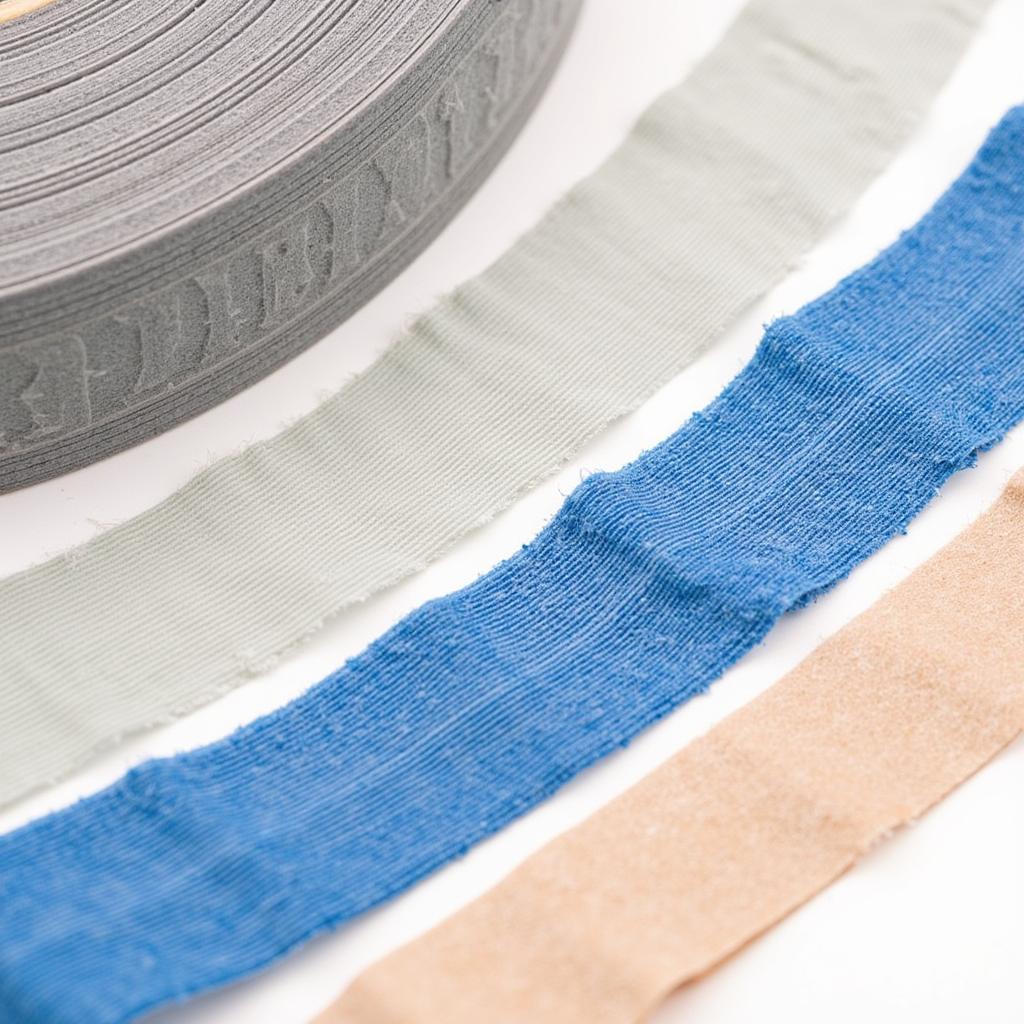Collision Tape is essential for protecting athletes in contact sports. It provides support and compression to help prevent injuries and manage existing ones. From ankles to wrists, understanding the uses and benefits of this versatile tool can significantly enhance player safety and performance.
What is Collision Tape and Why is it Important?
Collision tape, also known as athletic tape or rigid tape, is a strong, non-elastic adhesive tape designed to restrict movement and provide support to joints and muscles. It’s a crucial piece of equipment for athletes participating in contact sports like football, rugby, and hockey, where the risk of impact and injury is high. Using collision tape can significantly reduce the risk of sprains, strains, and other common sports injuries. It also provides stability to previously injured areas, allowing athletes to return to play with confidence.
The Benefits of Using Collision Tape
Using collision tape offers a range of benefits for athletes, including:
- Injury Prevention: By limiting joint movement, collision tape helps prevent excessive strain and potential injuries.
- Support and Stability: It offers firm support to injured or weak joints, allowing athletes to continue playing with reduced risk.
- Pain Management: The compression provided by the tape can help manage pain and swelling associated with injuries.
- Enhanced Confidence: Knowing that a vulnerable area is supported can boost an athlete’s confidence and allow them to focus on their performance.
- Versatility: Collision tape can be applied to various body parts, making it a valuable tool for addressing a wide range of injuries.
How to Properly Apply Collision Tape
Proper application of collision tape is crucial for its effectiveness. Incorrect application can reduce its benefits and even cause further harm. Here’s a general guide:
- Clean and dry the skin: Ensure the area is free of oils, lotions, or sweat.
- Apply pre-wrap (optional): This protects the skin and hair from the adhesive.
- Anchor the tape: Start with a firm anchor strip above or below the injured area.
- Apply support strips: Overlap the strips by about half their width, applying firm but not excessive pressure.
- Check for circulation: Ensure the tape isn’t too tight and that blood flow is not restricted.
- Remove the tape after activity: Prolonged use can irritate the skin.
 Types of Athletic Tape
Types of Athletic Tape
Different Types of Collision Tape
While “collision tape” often refers to rigid tape, there are other types of athletic tape available:
- Rigid Tape: Offers the strongest support and is ideal for immobilizing injured joints.
- Kinesiology Tape: A flexible tape that provides support while allowing a range of motion.
- Cohesive Bandages: Self-adhering bandages that offer compression and support.
When to Seek Professional Help
While collision tape can be a valuable tool, it’s essential to consult with a medical professional or athletic trainer for serious injuries. They can properly assess the injury and recommend the appropriate treatment plan.
Conclusion: Maximizing Performance and Safety with Collision Tape
Collision tape plays a crucial role in protecting athletes and allowing them to perform at their best. Understanding the different types, proper application techniques, and when to seek professional help ensures that this essential tool is used effectively and safely. By utilizing collision tape correctly, athletes can minimize the risk of injuries and focus on achieving their goals on the field.
FAQ
- How long can I leave collision tape on? It’s generally recommended to remove it after activity.
- Can I use collision tape on an open wound? No, consult a medical professional for wound care.
- What’s the difference between rigid tape and kinesiology tape? Rigid tape immobilizes joints, while kinesiology tape allows movement.
- Can I reuse collision tape? No, it loses its adhesive properties after use.
- Where can I buy collision tape? It’s available at most sporting goods stores and pharmacies.
- Is collision tape waterproof? Most rigid tapes are water-resistant but not waterproof.
- Can I apply collision tape myself? Yes, but seek guidance from a professional for complex injuries.
Other helpful articles on our website:
- Injury Prevention in Football
- Understanding Sports Injuries
- The Importance of Proper Warm-up
Need support? Contact us 24/7 at Phone Number: 0909802228, Email: [email protected] or visit us at 101 Đ. Lý Chiêu Hoàng, Phường 10, Quận 6, Hồ Chí Minh, Việt Nam.